
After the sterling soared and some British newspapers roared at a supposed Brexit victory for Prime Minister Boris Johnson, Europe's power brokers had a more sobering message: the basic divorce deal is not changing.
Three years after the United Kingdom voted to leave the European Union, the outcome of the tortuous Brexit crisis remains unclear, with options ranging from an acrimonious rupture on October 31 to a smooth, amicable exit or even another referendum.
Boris Johnson, an avowed Brexiteer, bets that the threat of a disorderly "no-deal" exit will convince German Chancellor Angela Merkel and French President Emmanuel Macron that the EU must grant him the divorce deal he wants.
On his first foreign trip as prime minister, the response from Germany and France was polite but firm: the Withdrawal Agreement struck last year by then-prime minister Theresa May will not be changed much. And time is ticking.
"I want to be very clear," Macron said. "In the month ahead, we will not find a new withdrawal agreement that deviates far from the original."
In Berlin, Merkel used a puzzling remark about finding an answer in "30 days" to underscore just how little time remained before the October 31 Brexit deadline and how complex the Irish border riddle was.
'Le breakthrough? No, no change.'
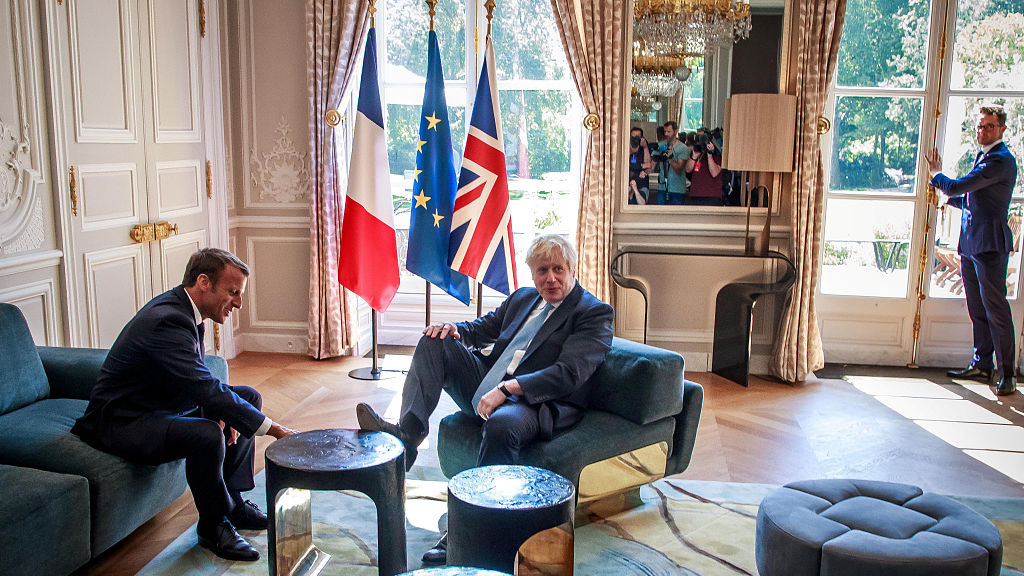
French President Emmanuel Macron and British Prime Minister Boris Johnson speak during a meeting at the Elysee Palace in Paris, France, August 22, 2019. /VCG Photo
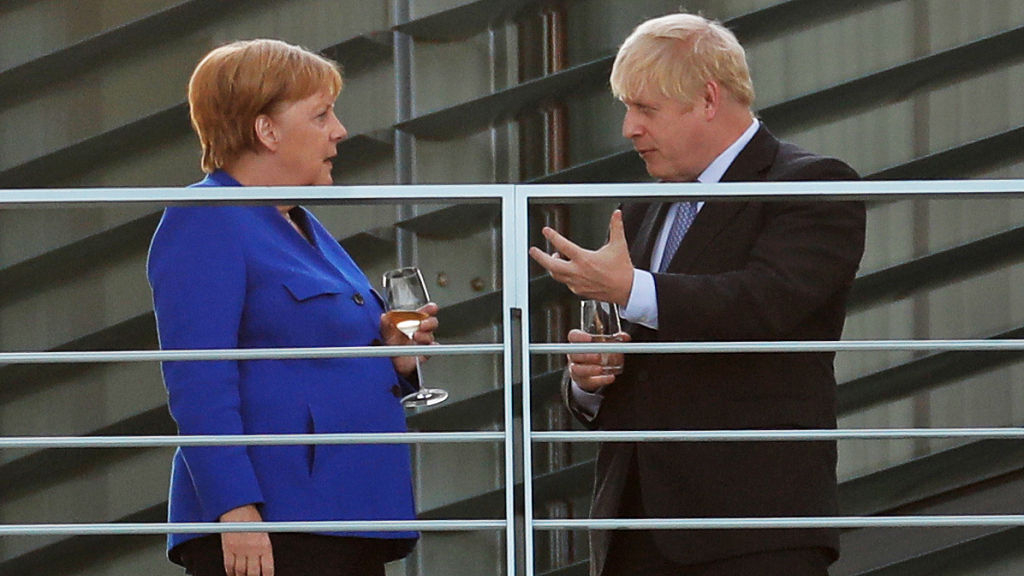
German Chancellor Angela Merkel and British Prime Minister Boris Johnson have a drink on the terrace at the Chancellery in Berlin on his first foreign visit since taking office on August 21, 2019. /VCG Photo
Johnson, who allowed himself to put one of his feet on a coffee table at the Elysee Palace in a light moment with Macron, lauded Europe for "positive noises" and insisted a deal could be done, possibly in the "final furlong."
Sterling had its biggest jump in three months on Thursday as some investors bet that even the possibility of some change to the Brexit deal meant a compromise could be reached.
The Daily Mail newspaper ran the headline "Macron makes (un petit) concession" and asked in an editorial: "Le breakthrough?" The Times said: "New hope for Boris Johnson as Emmanuel Macron says Brexit deal is possible."
But in Berlin, Paris and Brussels, there was astonishment at the interpretation that there had been a major shift in EU policy.
By 1100 GMT on Friday, investors were reassessing whether British Prime Minister Boris Johnson had made any progress. Sterling, which had jumped more than one percent against the dollar on Thursday, was down 0.3 percent on the day to 1.2217 U.S. dollars.
Johnson's key demand is that the EU remove the Irish border backstop – an insurance policy that would keep the United Kingdom in a customs union with the EU unless a better solution is found to keep open Ireland's 500-km land border with the British province of Northern Ireland.
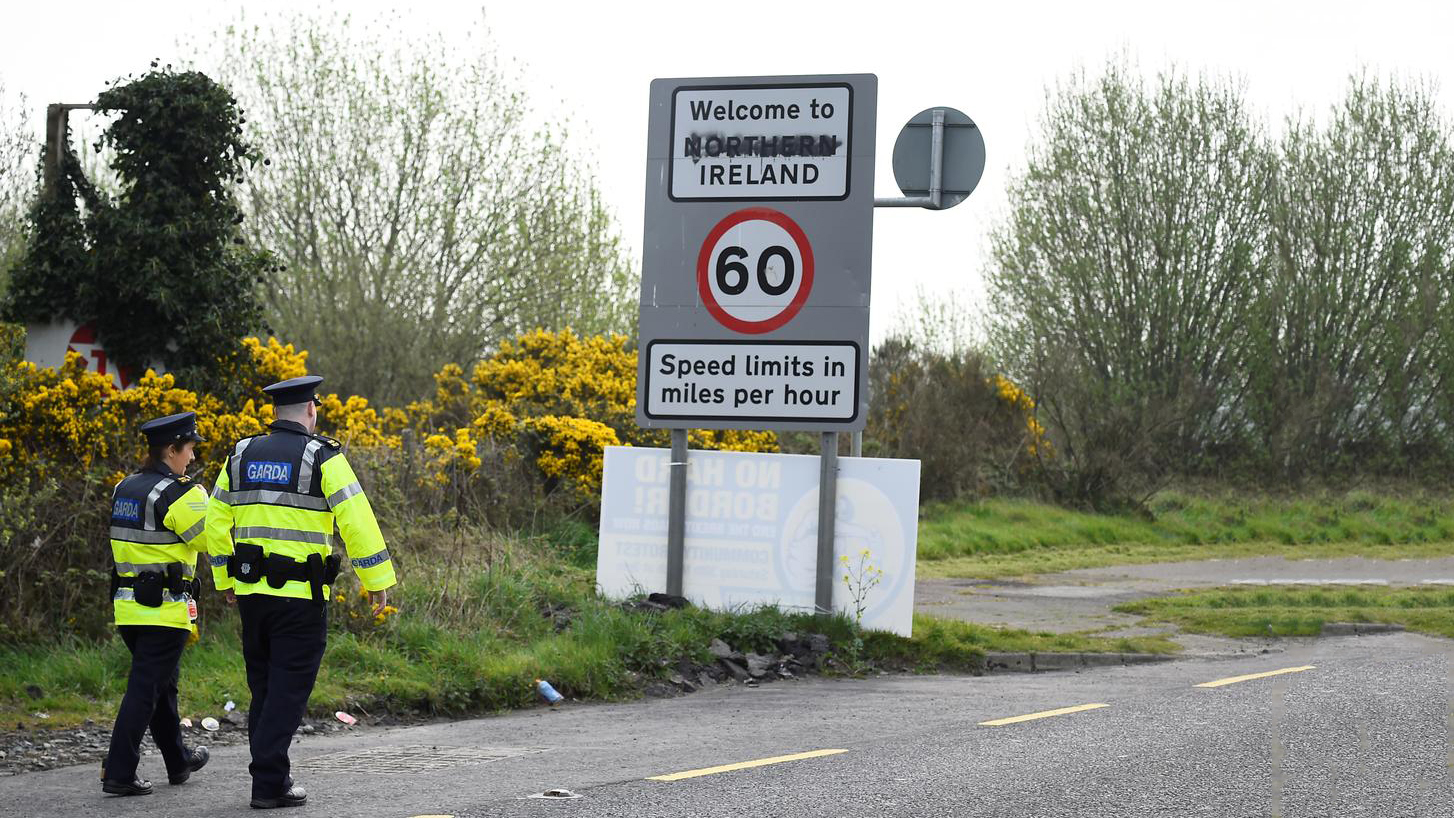
Britain says there must be a better solution, though it has yet to present one.
But part of the problem is that there is suspicion in Europe that Johnson is using Brexit diplomacy to line up a potentially vote-winning confrontation with the EU ahead of a possible British election.
Merkel is keen to ensure that the EU is not seen as being unwilling to talk – but is equally keen not to reopen the Withdrawal Agreement. Rather, as has been EU policy for some time, changes would be addressed in the non-binding declaration on future ties.
In Paris, a diplomatic source said Macron was trying to appear constructive – but had not changed his stance. France's position, the source said, was that discussions are possible within the acceptance that the fundamental principles of the Withdrawal Agreement remain the protection of the EU single market and political stability in Ireland.
So has there been a change in the EU's position? "No," said one official. "No change."
EU ready for any outcome
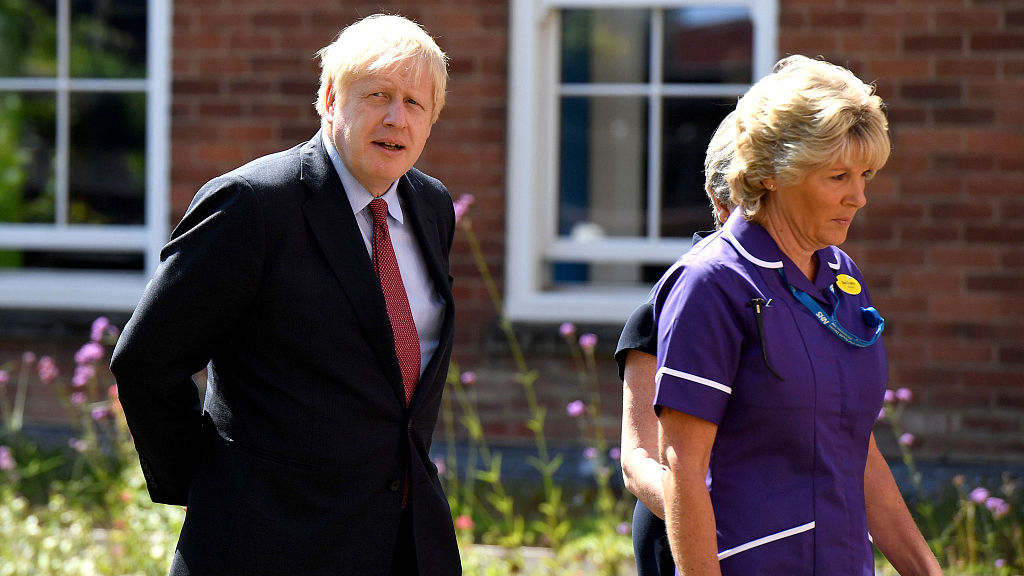
UK Prime Minister Boris Johnson walks with staff during a visit to Torbay Hospital in Torquay, Britain August 23, 2019. /VCG Photo
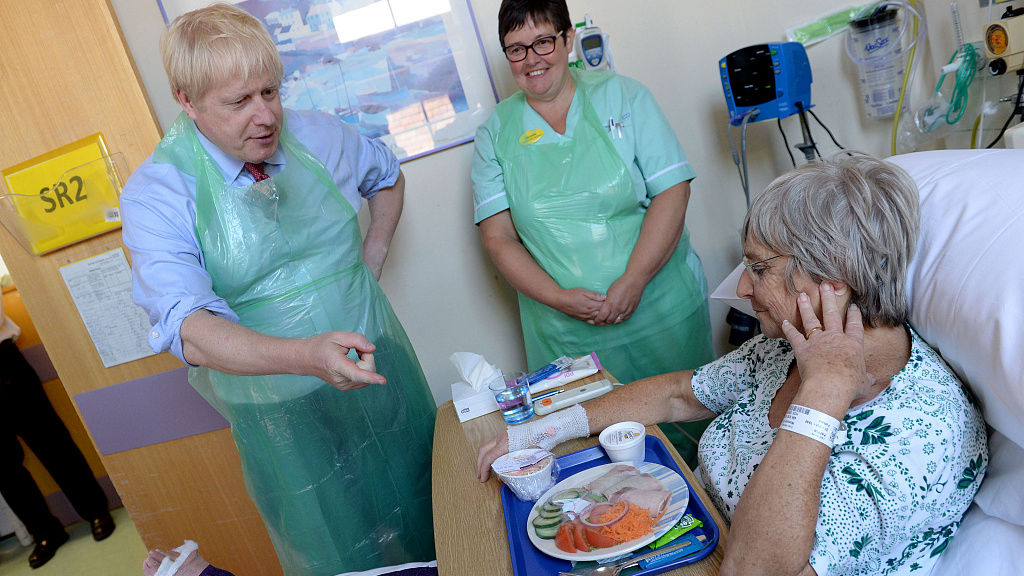
UK Prime Minister Boris Johnson serves food to Wenona Pappin, aged 70, during a visit to Torbay Hospital in Torquay, Britain, August 23, 2019. /VCG Photo
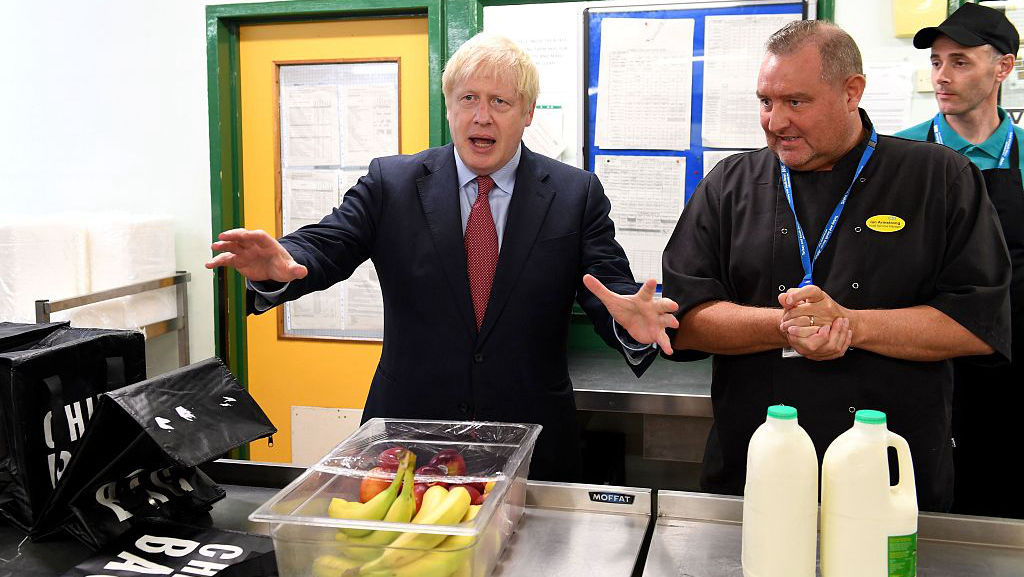
UK Prime Minister Boris Johnson speaks to kitchen staff as he visits Torbay Hospital in Torquay, southwest England, August 23, 2019. /VCG Photo
A source in Johnson's office said that while the meetings had been a success in terms of building rapport between the prime minister and the EU's two most powerful leaders, the rest of the bloc needed to show the same desire to work on a solution.
On Friday, EU Brexit negotiator Michel Barnier said that the EU wants an orderly withdrawal but it is ready for any outcome. He also said the EU is ready to analyze UK's proposals that are realistic, operational and compatible with the EU principles.
In an encouraging sign, Dutch Prime Minister Mark Rutte said on Friday he would be willing to listen to alternative plans for the Irish backstop – the biggest stumbling point to agreement – but warned there was no easy solution.
The need for broader support is likely to be relayed to Donald Tusk, President of the European Council that brings together all EU member states' leaders, when he meets Johnson on Sunday at a G7 summit in the French resort of Biarritz.
The meeting with Tusk, who has been a consistent critic of Britain's decision to leave the EU and its handling of negotiations, will give some indication on how much appetite there is to work for a deal among the rest of the bloc.
(With input from Reuters)
(Cover: French President Emmanuel Macron and UK Prime Minister Boris Johnson deliver a joint statement before a meeting on Brexit at the Elysee Palace in Paris, France, August 22, 2019. /VCG Photo)

Copyright © 2018 CGTN. Beijing ICP prepared NO.16065310-3
Copyright © 2018 CGTN. Beijing ICP prepared NO.16065310-3